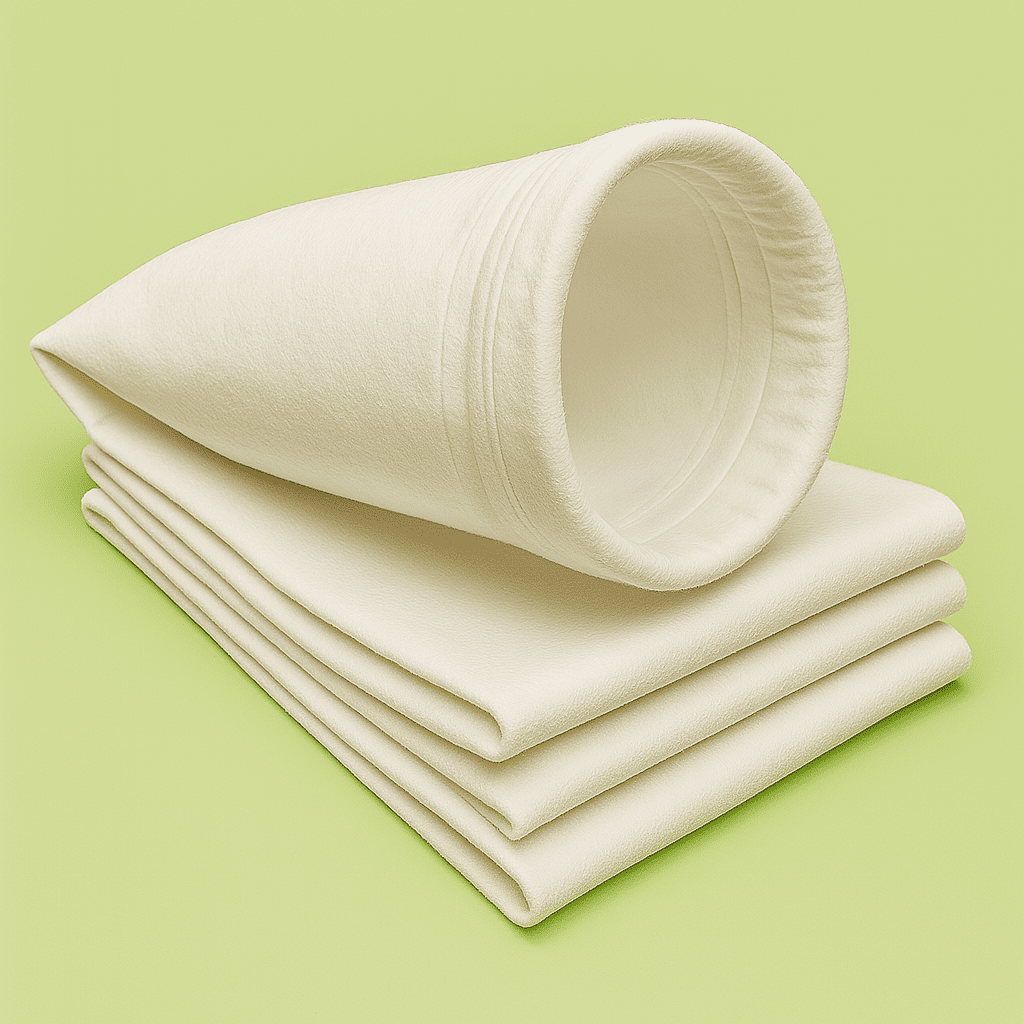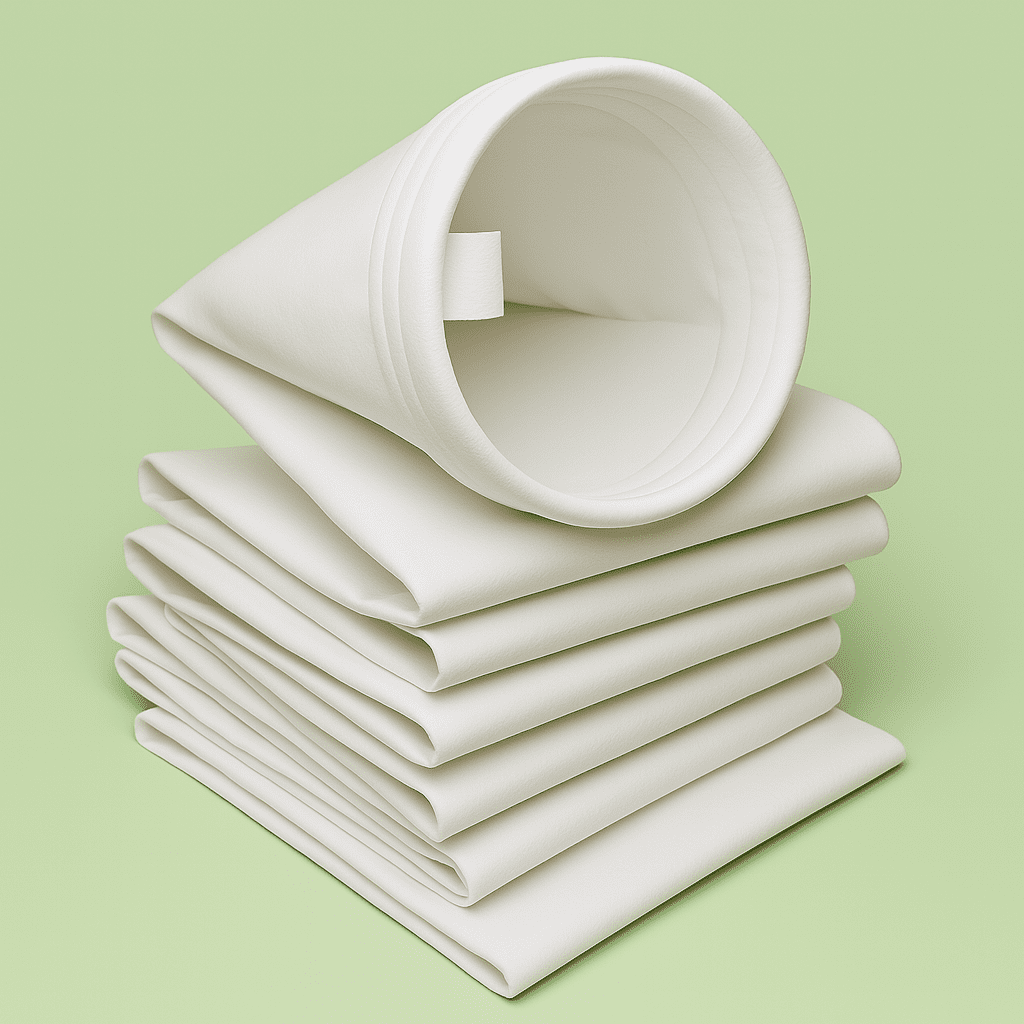Bag Filter
- Homepage
- Filtration
- Bag Filter
What Is a Bag Filter?
Bag filters are critical filtration components designed to capture dust, particulates, and fine contaminants generated during various industrial production processes. They are used extensively across sectors such as iron and steel, cement, aluminum, foundries, wood and sawdust processing, chemical manufacturing, and paper production.
Each industry presents unique operating conditions. Therefore, bag filters must be engineered using materials specifically selected for their temperature tolerance, chemical resistance, mechanical strength, and system compatibility.
Key Considerations in Bag Filter Selection:
Before beginning production, several operational parameters must be thoroughly evaluated, including:
Nature of the production process
Operating temperature range
Type and concentration of chemicals or vapors
Particle size and composition of dust
Distance between the dust source and the filtration unit
Filtration system capacity and layout
These factors are essential for selecting the most effective and durable filter bag for each application.
Bag Filter Manufacturing Process
The production process starts by transforming fiber-based raw materials into filter fabric using a needle punching technique, resulting in a dense and resilient nonwoven textile. Due to this production method, bag filters are also commonly referred to as needle felt filter bags.
The filter fabric then undergoes a series of surface treatments to enhance performance:
Hydrophobic and Oleophobic Treatment: The fabric is immersed in special solutions to gain water- and oil-repellent properties, improving resistance to moisture and oily particles during operation.
Glazing Process: One surface of the fabric is heat-treated and smoothed to minimize dust adhesion, optimize airflow, and support the self-cleaning function of pulse jet systems.
Once these treatments are complete, the fabric is rolled into spools, then cut to required dimensions based on system specifications. The fabric is stitched longitudinally using chain-stitch machines to form a tubular shape. A bottom cap is sewn to the sealed end, and a flexible top collar or cuff is added to allow secure mounting onto the filter cage and venturi system.
Each filter bag is then inspected, trimmed, and packaged after passing final quality control checks.
Consultation and Custom Product Support
Choosing the right filter bag is crucial to maintaining optimal system performance, ensuring regulatory compliance, and extending the lifespan of filtration equipment.
At Fora Filter, we offer professional consultation services to help you determine the most suitable filter bag material, configuration, and specifications based on your industry, process parameters, and filtration system layout.
For detailed technical support and custom filter solutions, feel free to contact our team of experts. We’re here to help you design high-efficiency, cost-effective, and application-specific filtration systems.


